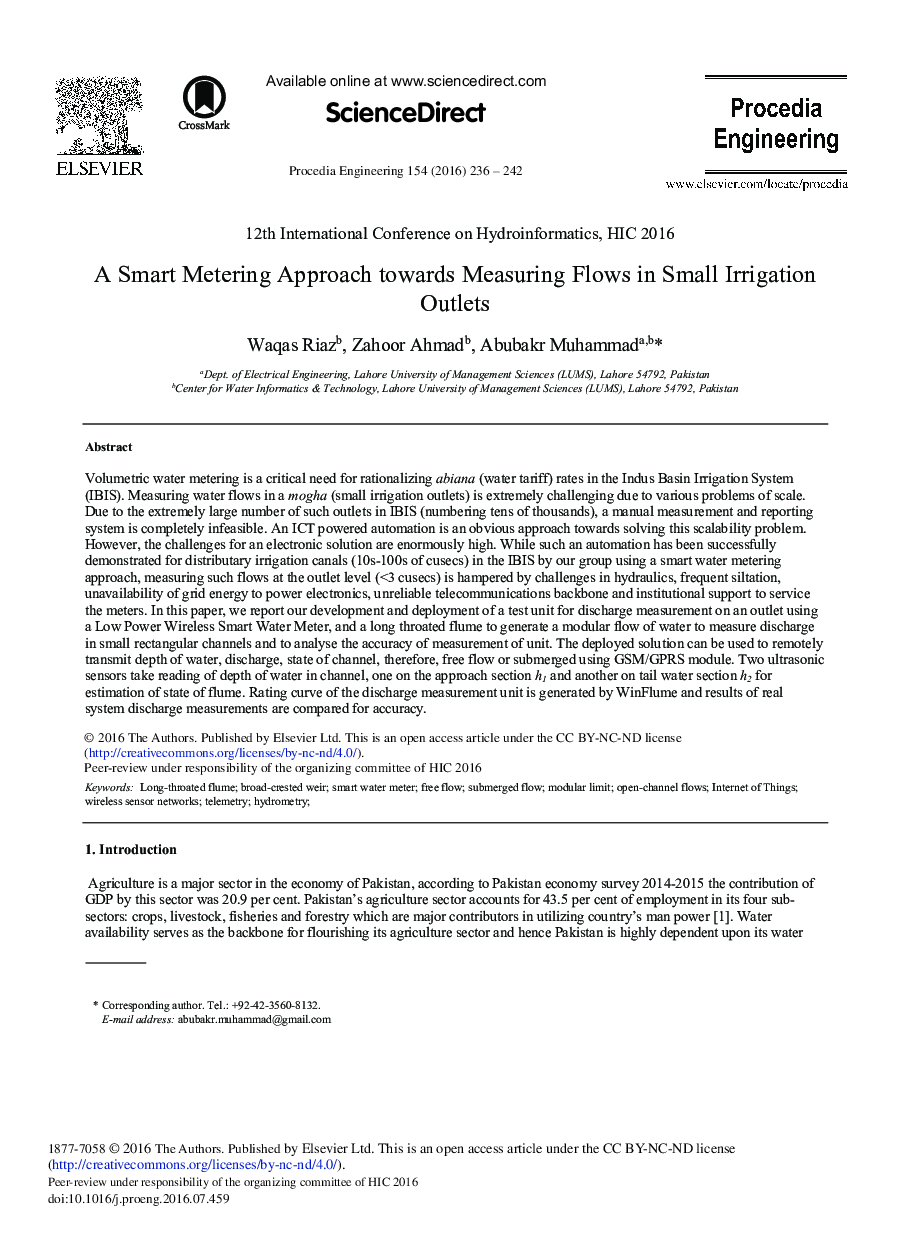| Article ID | Journal | Published Year | Pages | File Type |
|---|---|---|---|---|
| 5030455 | Procedia Engineering | 2016 | 7 Pages |
Volumetric water metering is a critical need for rationalizing abiana (water tariff) rates in the Indus Basin Irrigation System (IBIS). Measuring water flows in a mogha (small irrigation outlets) is extremely challenging due to various problems of scale. Due to the extremely large number of such outlets in IBIS (numbering tens of thousands), a manual measurement and reporting system is completely infeasible. An ICT powered automation is an obvious approach towards solving this scalability problem. However, the challenges for an electronic solution are enormously high. While such an automation has been successfully demonstrated for distributary irrigation canals (10s-100s of cusecs) in the IBIS by our group using a smart water metering approach, measuring such flows at the outlet level (<3 cusecs) is hampered by challenges in hydraulics, frequent siltation, unavailability of grid energy to power electronics, unreliable telecommunications backbone and institutional support to service the meters. In this paper, we report our development and deployment of a test unit for discharge measurement on an outlet using a Low Power Wireless Smart Water Meter, and a long throated flume to generate a modular flow of water to measure discharge in small rectangular channels and to analyse the accuracy of measurement of unit. The deployed solution can be used to remotely transmit depth of water, discharge, state of channel, therefore, free flow or submerged using GSM/GPRS module. Two ultrasonic sensors take reading of depth of water in channel, one on the approach section h1 and another on tail water section h2 for estimation of state of flume. Rating curve of the discharge measurement unit is generated by WinFlume and results of real system discharge measurements are compared for accuracy.
